A unique, hands-on experience for a new generation of nuclear experts
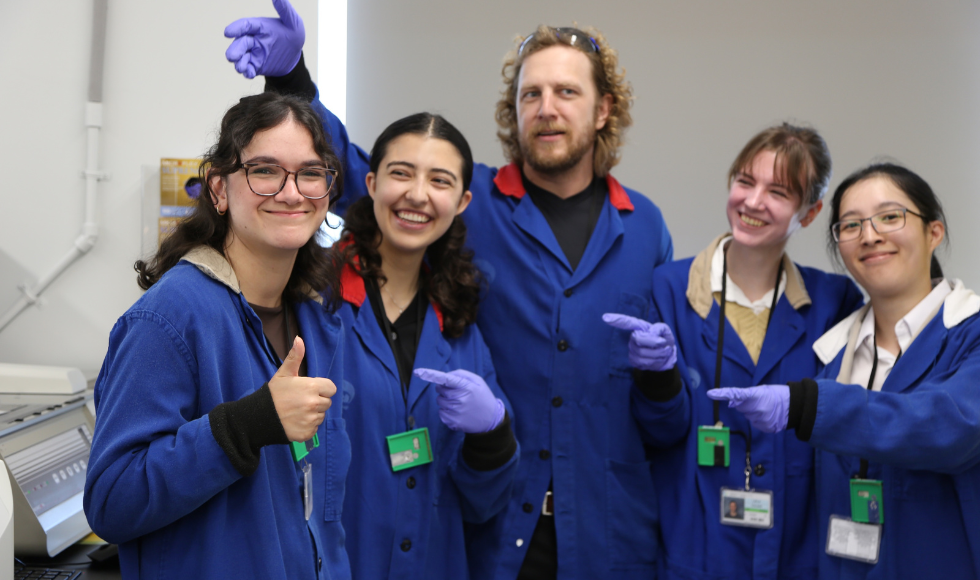
Twelve McMaster students spent their summer as Canadian Nuclear Laboratories research assistants. That included two weeks in July working on their projects with scientists at Canada’s national nuclear laboratories in Chalk River, owned by Atomic Energy of Canada Limited.
BY Jay Robb, Faculty of Science
September 2, 2025
Jessica Willem wasn’t ready to say good-bye.
Willem was at a waterfront restaurant in Deep River, Ont., with the 11 other McMaster undergrads who’d spent their summer working as Canadian Nuclear Laboratories (CNL) research assistants. The dinner capped off two unforgettable weeks at CNL’s Chalk River Laboratories in the heart of the Ottawa Valley. The next morning, the students would get on a bus for the six-hour ride back to McMaster.
“I can’t believe I’m not going back to Chalk River tomorrow,” said Willem. “I already miss it.”
The students had divided their summer research experience between two campuses. They spent 14 weeks at McMaster working on nuclear-related research projects with professors in the faculties of Science and Engineering.
For two weeks in July, the students continued working on their projects alongside scientists at Canada’s national nuclear laboratories in Chalk River, owned by Atomic Energy of Canada Limited (AECL).
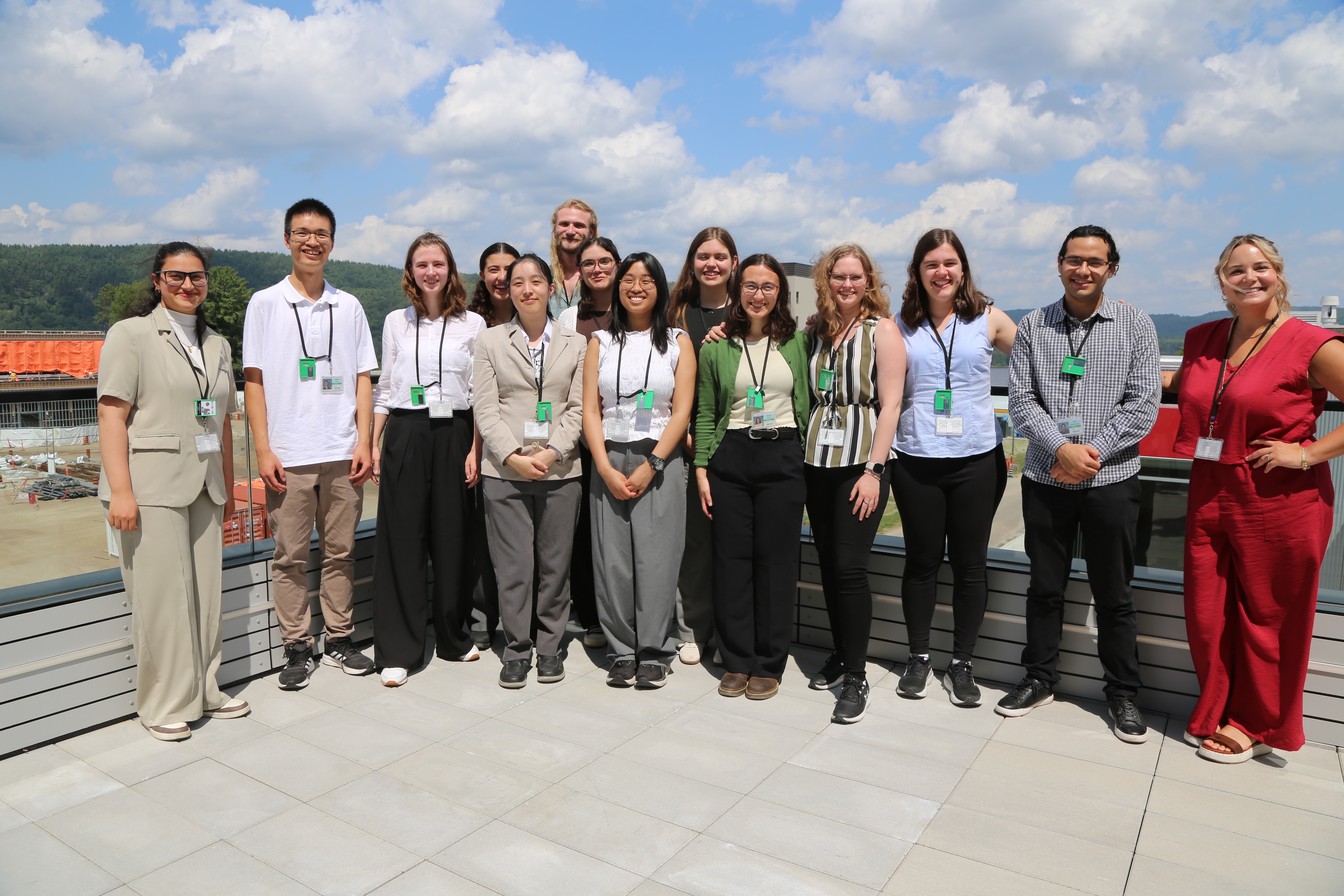
When they weren’t working on their projects, students were touring the campus and sitting in on guest lectures.
The learning was non-stop, says Willem.
She’d been in her element. The 20-year-old engineering student loves working on puzzles and few are bigger than the ones being solved by Canada’s premier nuclear science and technology organization, from restoring and protecting the environment to advancing clean energy and improving the health of Canadians.
It got even better for Willem — she spent her mornings working with applied physicist Andrew Erlandson. In the right hands, Willem believes nuclear energy has the power to save lives and our planet.
Erlandson’s research is doing exactly that: He is among the CNL scientists who are providing world-class expertise and innovation solutions to meet nuclear safety and national security challenges.
After helping to pioneer muon tomography technology in Canada, he’s now focused on developing noble liquid detector technology for gamma, neutron and neutrino detection that can be used in safety and security applications.
Mentorship
Erlandson and Willem met weeks ahead of her arrival at Chalk River Laboratories. While visiting family, Erlandson had swung by McMaster to give Willem a laptop preloaded with the computer modelling software used in his lab.
It was a gesture that didn’t go unnoticed by Willem. “Seriously, how many supervisors would do that for their students?”
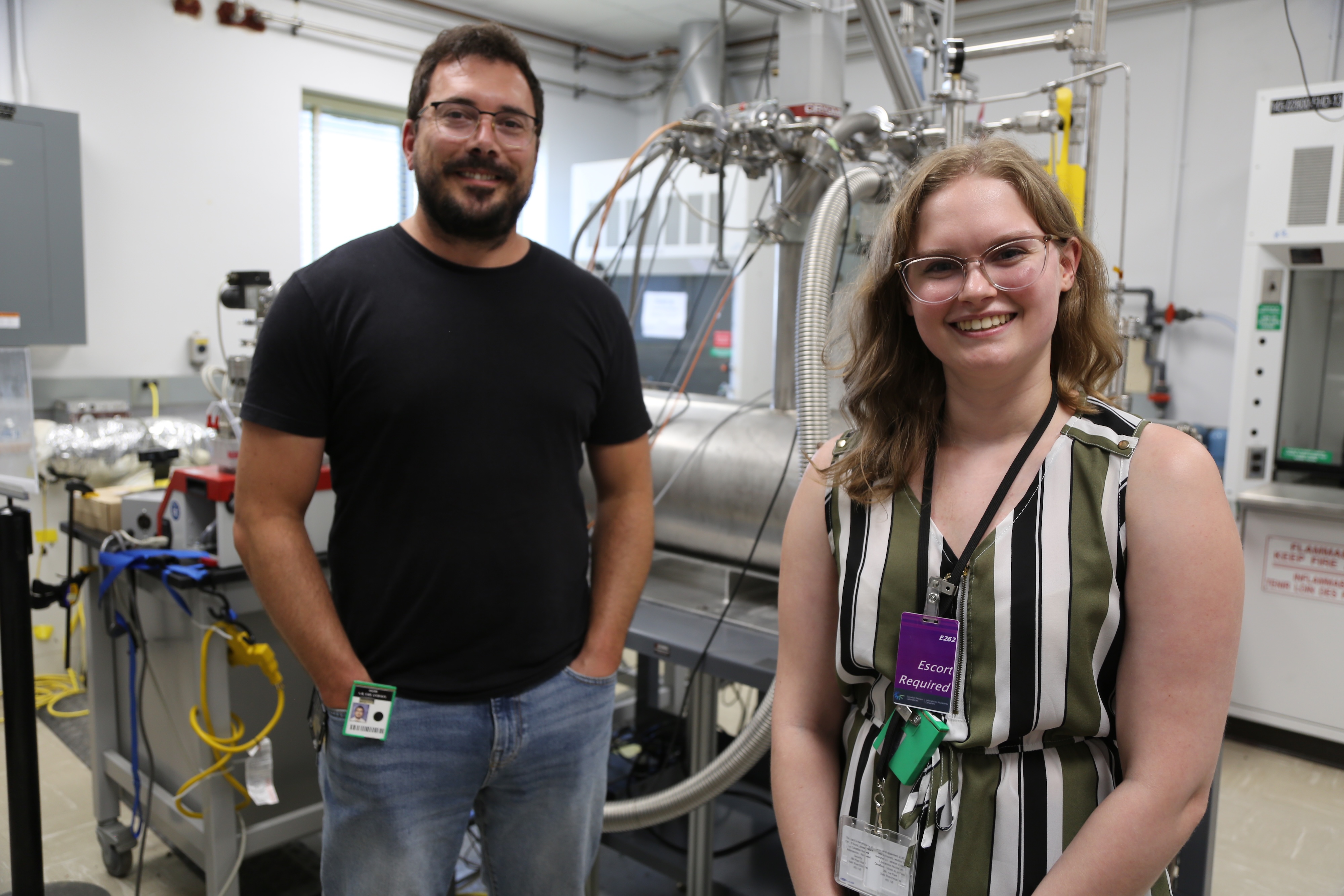
On their first morning working together, Erlandson told Willem to think of herself not as a student, but as a colleague. He wanted the learning to go both ways — and it did. He encouraged Willem to meet as many scientists and staff as possible; even in the field of nuclear science, who you know matters as much as what you know.
The insatiably curious Willem wasn’t afraid to ask endless and obvious questions. Erlandson patiently answered them all. “I never once felt like Andrew was judging me,” says Willem.
Erlandson and other supervisors joined the students for the farewell dinner – he couldn’t pass up the opportunity to sing Willem’s praises one last time.
When Willem said she wasn’t ready to say good-bye, Erlandson suggested it was more of a “see you later.” He reminded her she’d always be welcomed back as a student outside of CNL and McMaster’s Undergraduate Student Research Experience, or as a freshly minted grad ready to launch what was destined to be a brilliant career.
“That’s the dream,” said Willem.
Inspiring careers
Hearing that students dream about careers in nuclear is music to Kiersten Smith’s ears.
Smith is a collaboration lead for CNL’s Academic Partnership Program, which is helping to establish a talent pipeline for the nuclear industry, encouraging collaborative research projects and facilitating joint access to the infrastructure, technology and expertise at Canada’s national nuclear laboratories.
The Academic Partnership Program launched in 2022 with McMaster as a founding partner, along with the University of Ottawa and Ontario Tech University.
“McMaster is known for being one of Canada’s major nuclear universities, and we already had so many close ties and long-standing collaborations in place,” says Smith.
Three cohorts of McMaster undergrads have now been part of this experiential learning opportunity, with a record 175 students applying for this year’s dozen positions.
Inspiring students
Since then, CNL’s Academic Partnership Program has grown to nine universities and engaged more than 7,000 students. Last month, CNL announced it was extending the university partnerships for another five years, to 2030.
“The nuclear industry is growing, and so is the research and development happening across its many multidisciplinary arms,” said program director Gina Strati.
“These students are joining the fight against the world’s most pressing issues — climate change, food insecurity, cancer, and more. It’s truly our honour to invest into the next generation of brilliant minds that will power the innovation we’ll see in our future.”

No two partnerships are the same. McMaster’s collaboration is unique — in its focus on undergrads and in bringing the students to Chalk River for an extended stay.
They also get a level of access that’s rarely given to anyone who’s not an employee — Chalk River Laboratories is among the country’s most secure facilities.
With their security clearance, Willem and the other 11 students were given CNL identification badges and email accounts. They also had permission to move around the campus without escorts and work in labs with their CNL supervisors.
The partnership with McMaster wouldn’t be possible without the continued support of CNL scientists like Erlandson, who volunteer their time, Smith says.
Erlandson says it’s a privilege to help out.
“One of our most important responsibilities as scientists is to train and mentor the next generation. It’s brilliant scientists and engineers like Jessica who’ll pick up, continue and build on our work. If they’re not there, science stops with us.”
McMaster students have earned a stellar reputation based on their professionalism, the skills and knowledge they bring to their positions and the calibre of their work, he says.
“They’re here because they want to be here and they’re personally motivated to do something important.”
Early career scientists
The students’ curiosity and desire to learn outside their field of study at Mac stood out for Svetlana Selivanova, head of CNL’s Radiochemistry and Medical Applications Section.
“Seeing what the students were able to achieve with their projects in a short couple of months before coming to CNL was very impressive.”
Selivanova supervised four McMaster students this summer — a major commitment of time and effort. Her motivations were simple. “Our field is in dire need of specialists.”
She also enjoys working with early career scientists — “It keeps me younger and allows me to stay relevant, both in science and in life.”
By introducing the students to the radiopharmaceutical science projects underway at CNL, Selivanova hopes their time at Chalk River inspires them, opens horizons and gives them a sense of belonging to something larger than a short summer project.
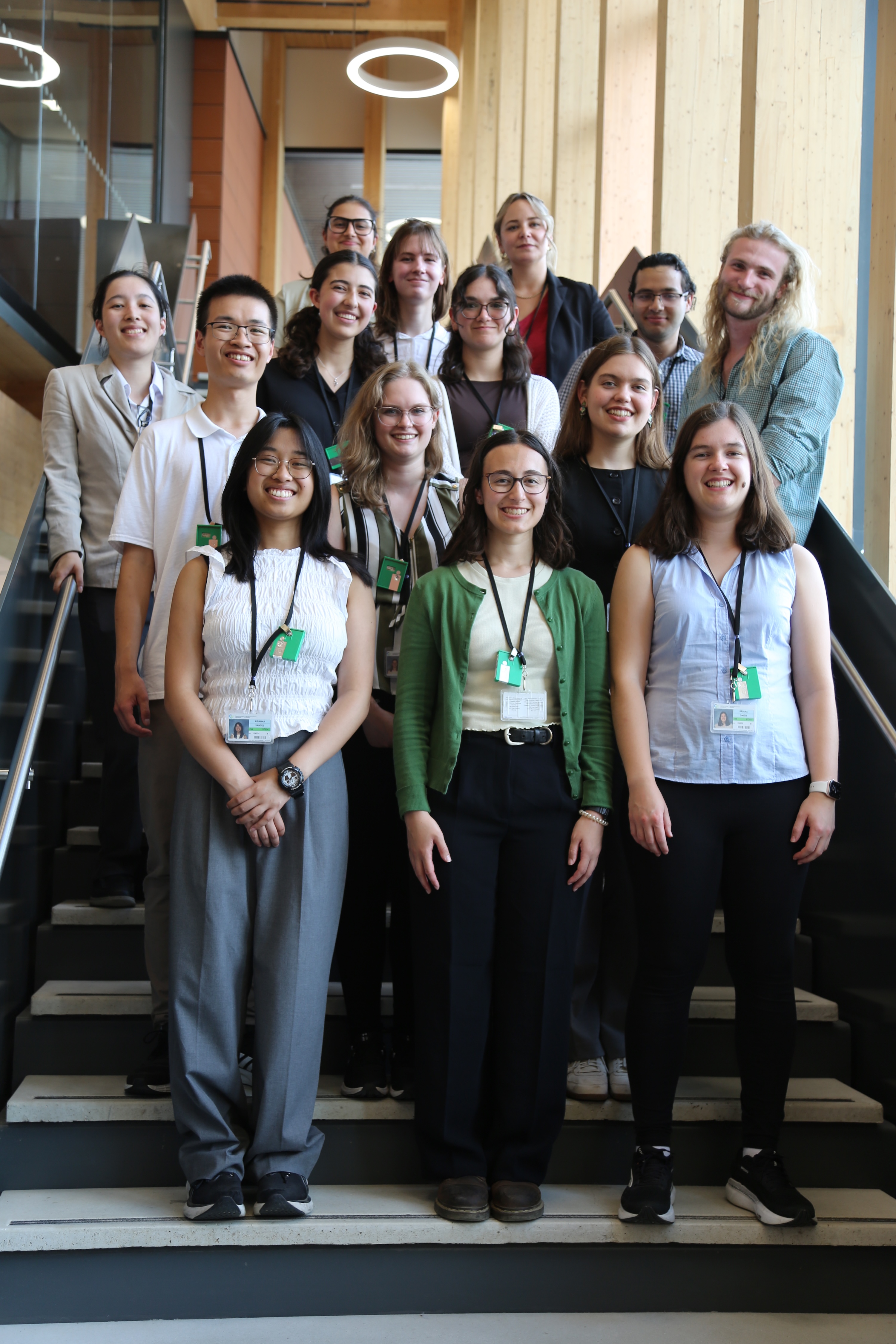 “Maybe it’s an idealistic point of view, but this is how I was inspired to study chemistry when I was a teen.”
“Maybe it’s an idealistic point of view, but this is how I was inspired to study chemistry when I was a teen.”
Like Selivanova and Erlandson, Smith was impressed with the McMaster students.
A lot of work goes into planning the annual visits. Watching students excel is the payoff for Smith.
“I can’t say enough good things about them. The students were such a joy to host and I’m so proud of each and every one of them.”
The students deliver
Perhaps the proudest moment came during the final afternoon, when all 12 students delivered five-minute talks about their research projects in front of their supervisors.
What stood out for Smith was how the students supported one another — they put away their phones and gave their undivided attention. They cheered each other on and were the first to put up their hands during the Q&A portion of their presentations.
Smith wasn’t surprised to learn they’d gotten together at the hotel the night before to prepare.
Sitting in the auditorium, it was easy to confuse the undergrads with PhD students and postdocs. Yehia Abdelkhalek, a 21-year-old physics student from Saudi Arabia, delivered his presentation with the poise and confidence of a tenured professor.
Abdelkhalek learned about the CNL program last year while on a co-op work term with the McMaster Health Physics Department, which is responsible for the safety, continuous monitoring and training for everyone who deals with radiation at McMaster. He applied this year with the hope of working on a project that lined up with his interest in computational physics.
“To my surprise, I got in. I was even more surprised when I found out how many students had applied.”
He says the two weeks at Chalk River Laboratories exceeded his expectations. He spent his mornings doing research and having extended conversations with his CNL supervisors, Thaneshwor Kaloni and Christopher Maxwell.
“I gained so much invaluable knowledge and experience that I’m bringing back to McMaster and applying to my senior thesis project.”
An afternoon tour of the National Research Universal reactor was a highlight for Abdelkhalek.

The reactor, which shut down in 2018, is far larger than the McMaster Nuclear Reactor — it seemed like something that could’ve powered an entire city, Abdelkhalek said.
“All of us were in awe when we went into the control room. It was like we were on a movie set.”
Like Willem, Abdelkhalek would definitely consider a career with CNL once he completes his PhD in physics.
“Two weeks wasn’t enough time to see everything at Chalk River Laboratories, yet it was just enough to give us an understanding and appreciation of the work they’re doing. I learned a lot and that’s always the main thing for me.”
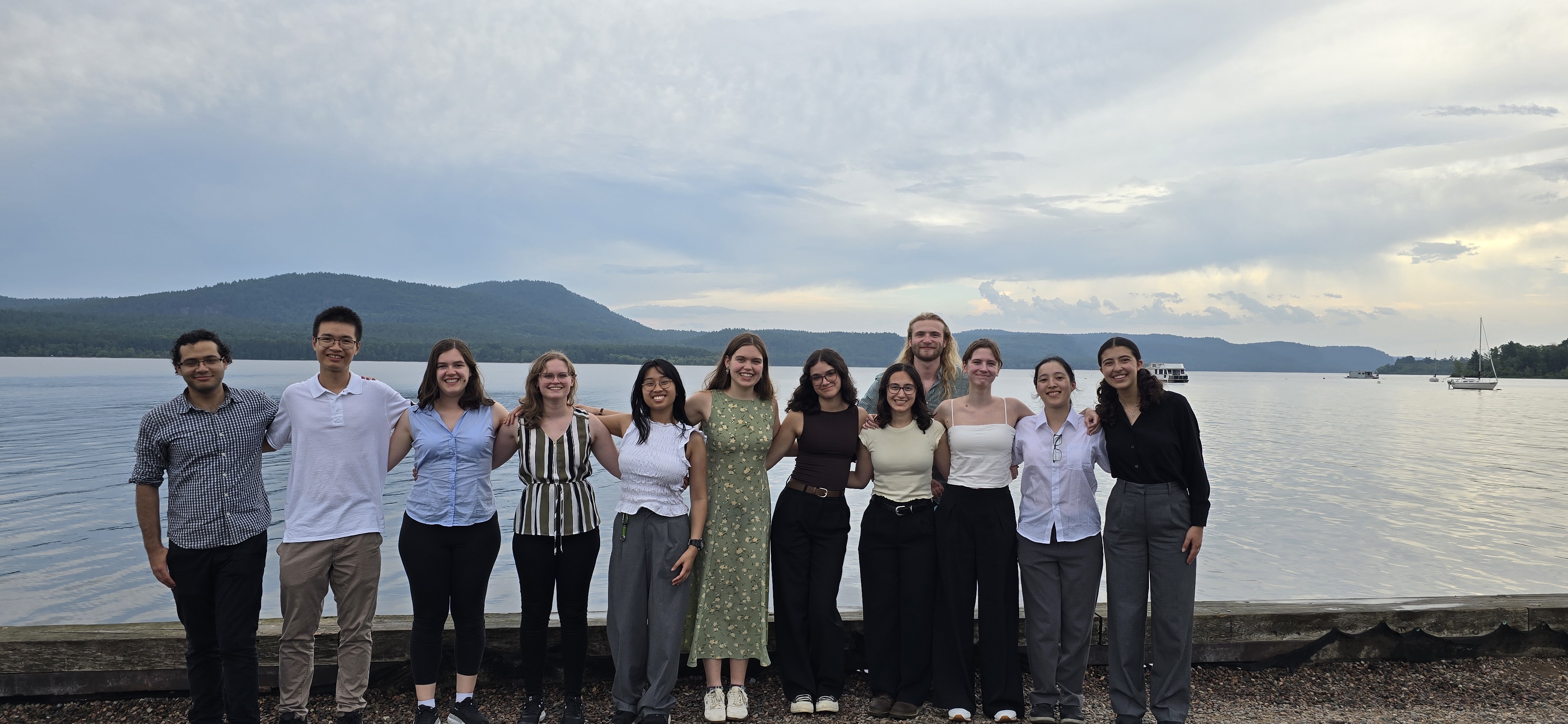
While Willem didn’t want to leave, she returned to McMaster with 11 new friends from different programs, years and faculties.
Everyone had been a stranger at the start of the experiential learning trip. But nothing bonds a group quite like a six-hour bus ride followed by an unforgettable experience.
“We talked the whole way up and kept talking and hanging out during our two weeks at Chalk River. It was such an amazing and unique experience that we got to share together.”
The students from the program shared their experiences at a poster presentation this month. Click here to learn more.


